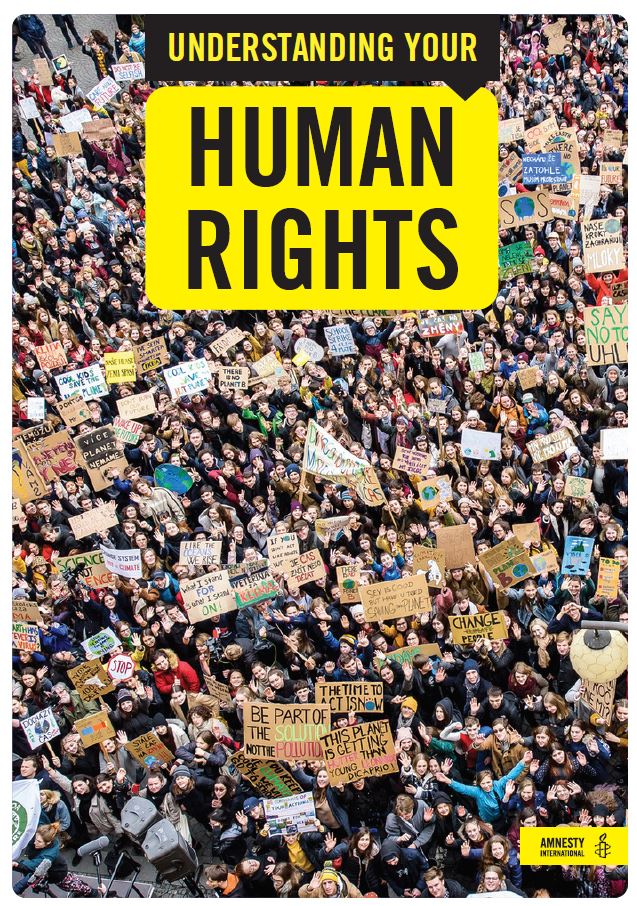A National Human Rights Act would provide a roadmap from the many challenges we face, says Amnesty International Australia as it assesses the Morrison Government’s human rights track record on Human Rights Day.
To mark the anniversary of the Universal Declaration on Human Rights on December 10, Amnesty International Australia has compiled a scorecard of the Federal Government’s human rights improvements since the 2019 election. Its key finding is that a Human Rights Act would address many of the human rights issues, and potential violations, that Australia is currently dealing with.
In the leadup to the last election, Amnesty International Australia issued A Human Rights Agenda for the Next Federal Government, which called on all parties to pledge to put human rights at the heart of their policy decisions.
While there have been improvements, overall Amnesty believes the Morrison Government can and should do more. Looking back at the key human rights issues raised at the time of the Government’s re-election in 2019, Amnesty has made the following assessment:
- The government to work to enshrine a Human Rights Act.
Human rights protect us all, ensuring every single person in our society is treated fairly and justly. Australia is the only western democracy without a bill of rights or an equivalent law that protects the rights of all people. Committing to human rights would provide a mechanism to balance the rise of China, tackle climate justice and protect the most vulnerable as we recover from the social and economic costs of the COVID pandemic..
- End the over-representation of Indigenous children and young people in Australia’s criminal justice system.
Indigenous children and young people are 22 times more likely to end up in the youth justice system than their non-Indigenous peers. While the rate has dropped, it is still completely unacceptable. Although the government has continued with the implementation of Optional Protocol to the Convention Against Torture (OPCAT), and set justice targets to end the over-representation of Indigenous children and young people in prison, they haven’t acted to raise the age of criminal responsibility to at least 14, ended high rates of children on remand, or adequately funded Aboriginal and Torres Strait Islander Legal Service.
- Support the creation of safe and legal routes for people seeking asylum, by increasing the annual refugee resettlement intake and prioritising people with humanitarian needs through alternative migration streams.
The government reduced the annual humanitarian (refugee) intake by 5,000 places to 13,750 people in the 2020/21 Budget. It is stepping back from any role that sees Australia safely resettle people seeking refuge. Amnesty remains deeply critical of Australia’s treatment of people who have sought refuge. Whi a resettlement deal has been rolled out with the US, the government refuses to accept a deal with New Zealand, and continues to detain people in Papua New Guinea and Nauru, and in onshore detention facilities including hotels. The government has undertaken a review into the Community Sponsorship Program ― Amnesty has great hopes that this will deliver a new, fair and just program.
The Human Rights Scorecard also includes assessments on the government’s progress regarding the eradication of violence against women, the status of the death penalty, LGBTQIA+ rights, disability rights, and climate justice.
Commenting on the Australian human rights scorecard, Amnesty International’s Campaign Manager, Tim O’Connor, said: “Human rights are the fundamental freedoms and protections that belong to every one of us. They ensure every single person is treated equally and justly regardless of race, sexuality, religion or beliefs. When we promote and defend human rights, all our lives are better and we can create a better world for ourselves and our fellow human beings.
“As Australia balances the rise of China, the impacts of climate change and the economic and social fallout of the pandemic, committing to human rights provides a way forward.
“Australia can and should put its commitments to human rights into practice to illustrate its principles, to support the vulnerable and to chart a fair and sustainable road map back to prosperity.”
Nearly 21,000 people have signed Amnesty’s petition calling on the government to implement a Human Rights Act.
